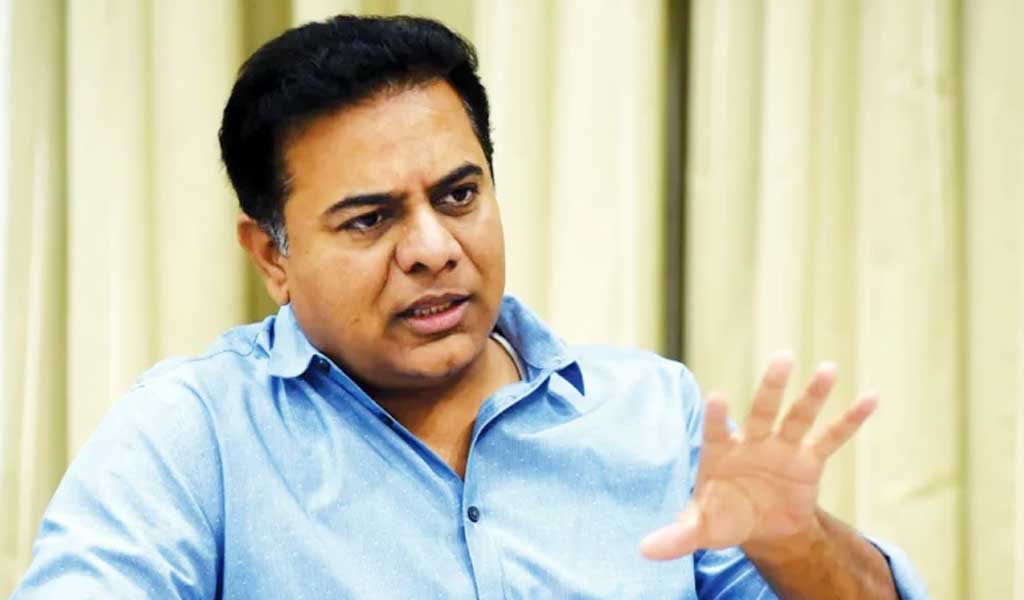 |
|
The Supreme Court of India is set to hear a crucial petition filed by KT Rama Rao, the working president of the Bharat Rashtra Samithi (BRS) party in Telangana, on February 10th, 2025. This petition demands the disqualification of seven BRS MLAs who defected to the ruling Congress party. The case highlights the ongoing political tensions in Telangana and underscores the complexities of anti-defection laws in India. The Supreme Court's decision will have significant implications for the political landscape of the state, potentially triggering by-elections and reshaping the power dynamics within the Telangana Legislative Assembly.
The petition filed by KTR is not an isolated incident. It follows a similar petition heard by the Supreme Court on January 31st, 2025, concerning other defected MLAs. This demonstrates a pattern of defections and the BRS party's proactive approach to challenge these actions through the legal system. The earlier petition involved MLAs Tellam Venkat Rao, Danam Nagender, and Kadiam Srihari, highlighting the scale of the political realignment within the state. The Supreme Court's previous directive to the Telangana Assembly Speaker to establish a reasonable timeframe for deciding on disqualification petitions underscores the urgency and importance attached to resolving these matters promptly and fairly.
The seven MLAs currently facing disqualification are Pocharam Srinivas Reddy, Bandla Krishnamohan Reddy, Kale Yadaiah, T Prakash Goud, Arekapudi Gandhi, Gudem Mahipal Reddy, and M Sanjay Kumar. Their defection to the Congress party represents a substantial shift in the political balance within the Telangana Assembly. The BRS party argues that these defections violate the principles of anti-defection laws, aiming to maintain political stability and prevent opportunistic shifts in party allegiance. The Supreme Court's interpretation and application of these laws in this context will set a significant precedent for future cases involving similar political defections.
KTR's assertive stance on social media platform X, stating the impossibility of the Congress party shielding the defected MLAs, reflects the BRS party's determination to pursue this legal battle vigorously. His call to action to the party cadre to prepare for potential by-elections highlights the strategic implications of the Supreme Court's impending decision. The outcome will likely necessitate by-elections in the constituencies represented by the defected MLAs, potentially leading to further political upheaval and electoral contests. The BRS party's strategic use of social media to mobilize its base and articulate its position underscores the role of digital communication in contemporary political campaigning and public engagement.
The legal arguments in this case will likely center on the interpretation of the anti-defection provisions of the Indian Constitution's Tenth Schedule. These provisions aim to prevent legislators from changing their party allegiance for personal gain and to ensure political stability. The Supreme Court will need to analyze the specific circumstances of each MLA's defection to determine whether they fall under the ambit of the anti-defection law. The court's decision will not only impact the immediate political situation in Telangana but will also provide valuable guidance for future interpretations of anti-defection laws across India. The case therefore serves as a crucial test of the efficacy and application of these laws in safeguarding the integrity of the legislative process.
Beyond the immediate legal implications, this case reflects broader trends in Indian politics. Party hopping and defections have become increasingly common, often motivated by political expediency or the pursuit of power. This case raises broader questions about the health of Indian democracy and the need for robust mechanisms to ensure accountability and prevent the erosion of the representative nature of legislative bodies. The Supreme Court's decision will undoubtedly influence future political behavior and could potentially lead to reforms aimed at strengthening anti-defection laws and making them more effective in curbing opportunistic political maneuvers.
The upcoming Supreme Court hearing holds considerable weight, not just for the political parties involved, but also for the broader political discourse in India. The outcome will have far-reaching consequences, influencing the way anti-defection laws are applied and interpreted across the nation. The eyes of the political spectrum are on the Supreme Court's decision, eager to witness the final judgment and its subsequent impact on the dynamics of Telangana's political arena.
Source: SC to hear KTR’s plea on disqualification of defected MLAs on Feb 10
